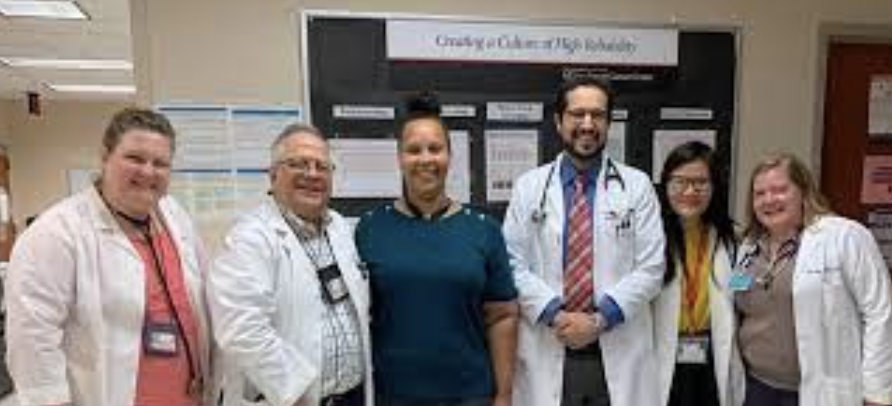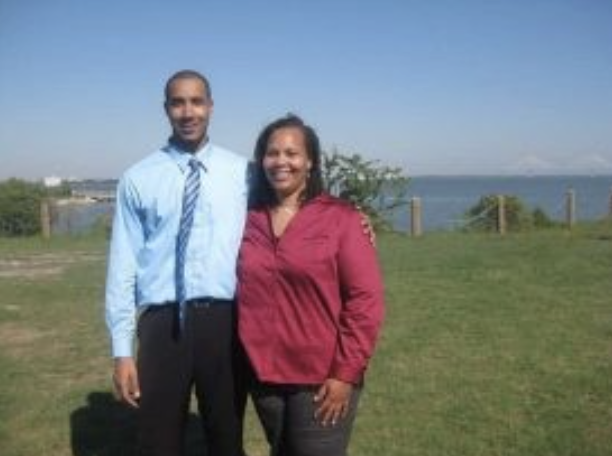Becoming an Empowered and [ACT]IVATED After a Renal Medullary Cancer Diagnosis
Patient Empowerment Network (PEN) is committed to helping educate and empower patients and care partners in the renal medullary carcinoma (RMC) community. Renal medullary carcinoma data around prevention, treatment and research is ever-expanding and it’s important for patients and families to educate themselves with health literacy tools and resources on updated information in RMC care. With this goal in mind, PEN initiated the [ACT]IVATED Renal Medullary Carcinoma (RMC) program, which aims to inform, empower, and engage patients to stay updated about the latest in RMC care.
The [ACT]IVATED Renal Medullary Carcinoma program can benefit all RMC patients, sickle cell trait patients, and patient advocates. [ACT]IVATED helps patients and care partners stay updated on the latest treatment options for their RMC, provides patient activation tools to help overcome barriers to accessing care and powerful tips for self-advocacy, coping, and living well with cancer.
Renal medullary carcinoma is a rare kidney cancer, and it’s essential that patients with sickle cell trait stay alert for symptoms of RMC. Flank pain and blood in the urine are warning signs that should be checked out immediately. Some research also recommends that individuals with sickle cell trait should also try to take precautions against extreme intense exercise due to a possible link to RMC.
![RMC [ACT]IVATED Tip](https://powerfulpatients.org/wp-content/uploads/Screenshot-2023-06-21-at-11.20.10-AM-1030x550.png)
Renal Medullary Carcinoma Disparities
PEN is fortunate to have an experienced RMC patient advocate Cora Connor as part of the team. Cora serves as the RMC Empowerment Lead. Cora’s brother Herman’s RMC diagnosis led her to found the advocacy organization R.M.C. Inc. when she decided she wanted to help raise awareness for other patients and families. She is so grateful that Herman’s RMC is now cured after successful treatment and hopes more effective therapies for RMC will be developed.
Cora interviewed expert Dr. Nizar Tannir from MD Anderson Cancer Center in several RMC programs. There are many Black, Indigenous, and People of Color (BIPOC) groups who experience healthcare disparities as RMC patients. Dr. Tannir explained how he’s cared for many Black, Hispanic, and other people of color patients who have experienced healthcare disparities and a lack of insurance coverage and access to quality treatments. “We need to remove those barriers and that’s the only way we’re going to address healthcare disparities, is by making it not disparity anymore. And how you do that, you give healthcare access, equal healthcare access to those individuals, because those individuals want to live, people want to live, people want to take care of themself, of their bodies, their health, they want to live longer, they want to be cured if they have cancer. But we have to provide them the access to the best, be it the treatments that are available right now, even clinical trials, even clinical trials of drugs that may not be FDA-approved, they should have access to those as well, they’re equal citizens in this country.”
Lack of health insurance is a common barrier to care for RMC patients. Dr. Tannir shared about this issue. “Unfortunately, there is another side of that story that is common to patients with RMC because they are young and many of them are either students or they’re working at different jobs, they don’t have…many of them do not have health insurance unless they serve in the military.”
![RMC [ACT]IVATED Tip 2](https://powerfulpatients.org/wp-content/uploads/Screenshot-2023-06-21-at-11.21.35-AM-1030x578.png)
Solutions for Improved Renal Medullary Carcinoma Care
Clinical trial participation is one approach that can improve care for RMC patients. It’s also key for patients to learn more from credible resources, asking questions to ensure your best care, and helping to educate others about renal medullary carcinoma for education and empowerment of the RMC community.
Clinical trial participation by diverse populations is important to develop new and refined treatments –- as well as toward a potential RMC cure. Dr. Tannir explained how treatments need to advance past chemo. “…we can’t stop with just chemotherapy, we can’t just have chemotherapy. We need more effective drugs, we need more drugs, because, unfortunately, not every single patient with RMC will respond to chemotherapy like Herman did and be cured and alive and are living well 10 years, 11 years and beyond.”
Dr. Tannir further explained about clinical trial participation and learning about the benefits and risks – and also expressed his hopes for an RMC cure. “…you should not be afraid of trials, you should embrace them and you should participate in them. But, of course, you know the role of the physician is to explain the rationale and the potential benefits and potential toxicity, because everything has a price. Unfortunately, there are some drugs that could cause side effects, but hopefully it’ll be worthwhile to achieve to break the barrier of cure.”
Raising awareness about a lack of insurance coverage for RMC patients is another key to improving care. Dr. Tannir shared advice for others to advocate for RMC patients and to raise awareness. …“work with your congressmen and congresswomen, work with patient advocacy programs, raise awareness. Let’s get everybody the healthcare insurance that they deserve, like members of Congress so that nobody is turned away from going to the best facility that can help them. I hope before I retire that I will see this achieved. Because that’s really, I think if the number one on my list of things to do is this…is have equal healthcare access to everybody with an RMC diagnosis, so that they get the best care they deserve.”
![RMC [ACT]IVATED Tip 3](https://powerfulpatients.org/wp-content/uploads/Screenshot-2023-06-21-at-11.22.56-AM-1030x586.png)
[ACT]IVATED Renal Medullary Carcinoma Program Resources
The [ACT]IVATED Renal Medullary Carcinoma program series takes a three-part approach to inform, empower, and engage both the overall RMC community and patient groups who experience health disparities. The series includes the following resources:
- What Are Renal Medullary Carcinoma Noted Disparities?
- Why Renal Medullary Carcinoma Clinical Trial Participation Is Pivotal
- Should Families of Renal Medullary Carcinoma Patients Undergo Genetic Testing?
- What Are the Challenges of Diagnosing Renal Medullary Carcinoma?
- With RMC Being an Aggressive Cancer, What Is the Prognosis?
- How Can Patients With Sickle Cell Trait Lessen RMC Risk?
- Intensive Exercise and Renal Medullary Carcinoma: Is There a Connection?
- What Do Renal Medullary Carcinoma Patients Have in Common?
- How Do You Explain RMC to Newly Diagnosed Patients and Families?
- What Renal Medullary Carcinoma Treatment Options Are Available?
- Renal Medullary Carcinoma Treatment Options for Newly Diagnosed Patients
- Biomarker CA-125 and Renal Medullary Carcinoma: What Do We Know?
- Advice for Newly Diagnosed Renal Medullary Carcinoma Patients
- A Renowned Expert Weighs in on the Future of Renal Medullary Carcinoma
- [ACT]IVATED RMC Resource Guide
- [ACT]IVATED RMC Resource Guide en Español
Though renal medullary carcinoma needs more research and treatment advances, patients and care partners can be proactive in gaining knowledge to help ensure optimal care. We hope you can benefit from these valuable resources to aid in your RMC care for yourself or for your loved one.
[ACT]IVATION Tip:
By texting EMPOWER to +1-833-213-6657, you can receive personalized support from PENs Empowerment Leads. Whether you’re facing a renal medullary carcinoma diagnosis, or caring for someone who is, PEN’s Empowerment Leads will be here for you at every step of your journey.





